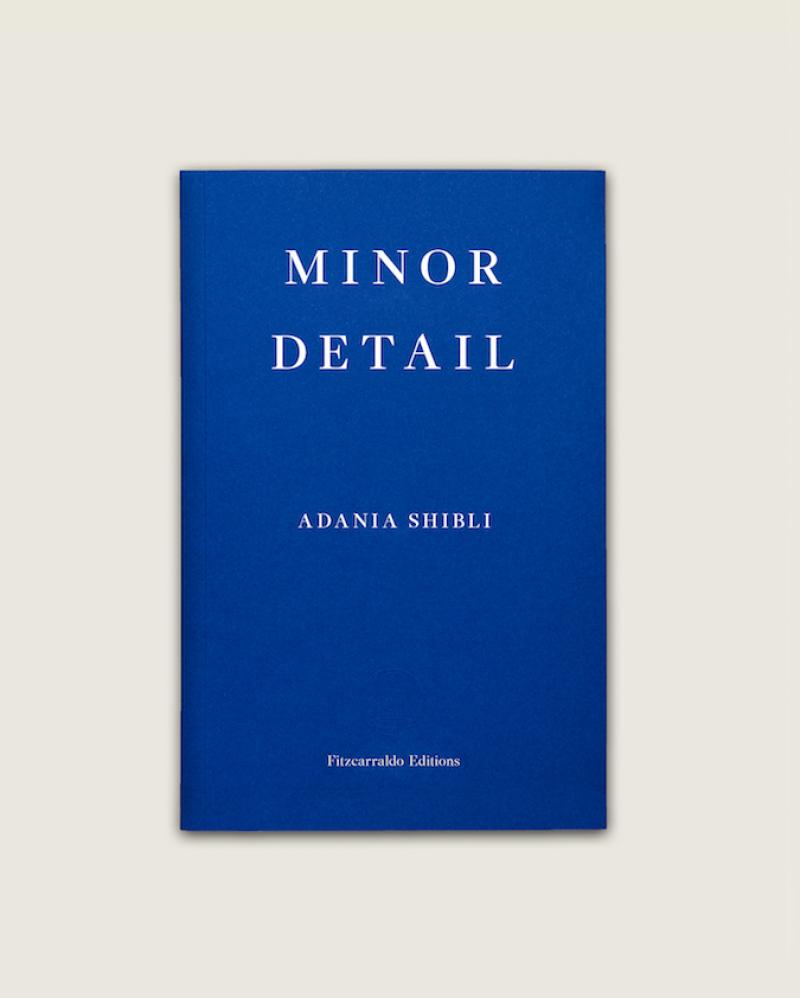A horrifying act committed by Israeli soldiers in 1949 sets in motion a tale in which all roads towards agency are revealed to be dead ends

This is a novel, translated from the original Arabic, about helplessness, a sensation that, for a variety of reasons, many of us may feel we have had to get used to over the past several months. Here however is a calculated description of helplessness in the extreme, in which all roads towards agency and action, change or transformation, are revealed to be dead ends. And it’s a journey rendered all the more moving by the subtlety of the story’s form and the elegance of its craft. Whether that is in any way redemptive or only something that serves to heighten a sense of loss is for readers to decide.
Split into two parts, Minor Detail begins with an account of the events leading up to the rape and murder of a young Arab woman by a platoon of Israeli soldiers in the Negev desert in 1949. The action is set following the creation of the state of Israel a year earlier, its further conquest of Arab lands and the flight or expulsion of 726,000 Palestinians from its territory. The narrative is told in the third person, often coldly analytic in tone, and focused on the platoon leader. His body is rotting, infected following an insect bite. He obsessively searches for and exterminates any stray arachnids in his hut. He obsessively patrols the desert for any stray Arabs. Those he finds, he and his platoon kill. He is appalled by the stench of the young woman. He goes through endless bars of soap. Whatever she says he cannot understand. The only emotional presence in the narrative comes in the shape of the victim’s dog. And no one can understand it either.

The second part is told from the first-person perspective of a Palestinian woman living in Ramallah today. Having read an account of the earlier incident in a newspaper, she becomes obsessed with tracing its detail. Which, following a conversation with the seemingly uninterested author of the newspaper account, proves not so easy to find. She seems embarrassed by her obsession. ‘Incidents like that aren’t out of the ordinary,’ she says apologetically, referring primarily, it seems, to the normalisation of such horrors in the years since 1949. Before justifying her interest on the coincidental basis that the life of the unnamed victim of part one was ended on a morning exactly 25 years before hers began. And apologising, again, for any awkwardness caused by her incidental revelations about the quotidian detail – soldiers, checkpoints and curfews – of her life under Israeli occupation. As a result of which she is, among other things, used to guns and scared of dogs. As for the rest, she seems to want to resensitise herself. To return the new ordinary to the extraordinary. To what it really is.
It’s in the least significant details that art historians can discern the genuine from the fake, she points out. As her need to justify herself increases. ‘Others claim, based on the same idea, that it is possible to reconstruct something’s appearance or an incident one has never witnessed, simply by noticing various little details which others claim to be insignificant,’ she continues, seeking further to explain her actions. She’s anxious (whether by nature or nurture remains unclear), obsessed with dusting (particularly after the bombing of neighbouring buildings leaves detritus on her workstation) and can’t sleep. So she takes a roadtrip to the site of the 1949 incident. After hiring a car in someone else’s name. And travelling (illegally) past checkpoints using someone else’s photo ID. Only by not being herself can she travel, only by not being herself can she access the past. Even when it appears as if she has gained agency, her expedition will ultimately demonstrate that she has not.
In both parts of the book, we’re reminded of the novel’s opening line: ‘Nothing moved except the mirage’. As the ‘I’s in her narrative tick over like the miles on her car’s odometer, her name is never revealed. Just as the Arabic place names have been removed (Arab bodies having been removed following the massacres and murders in 1949) from the landscape through which she travels. And yes, that does lead to an additional sense of awkwardness when reading this book in translation, as the connections between form and meaning become all-consuming. But that only serves to enhance this book’s power. While this is ostensibly a tale about the banality of brutality and the ability of the powerful to erase the powerless, Adania Shibli’s novel, and Elisabeth Jaquette’s translation, are an extraordinary masterclass in how to do things with words and the lacunae in between.
Adania Shibli, Minor Detail, translated by Elisabeth Jaquette, is published by Fitzcarraldo Editions